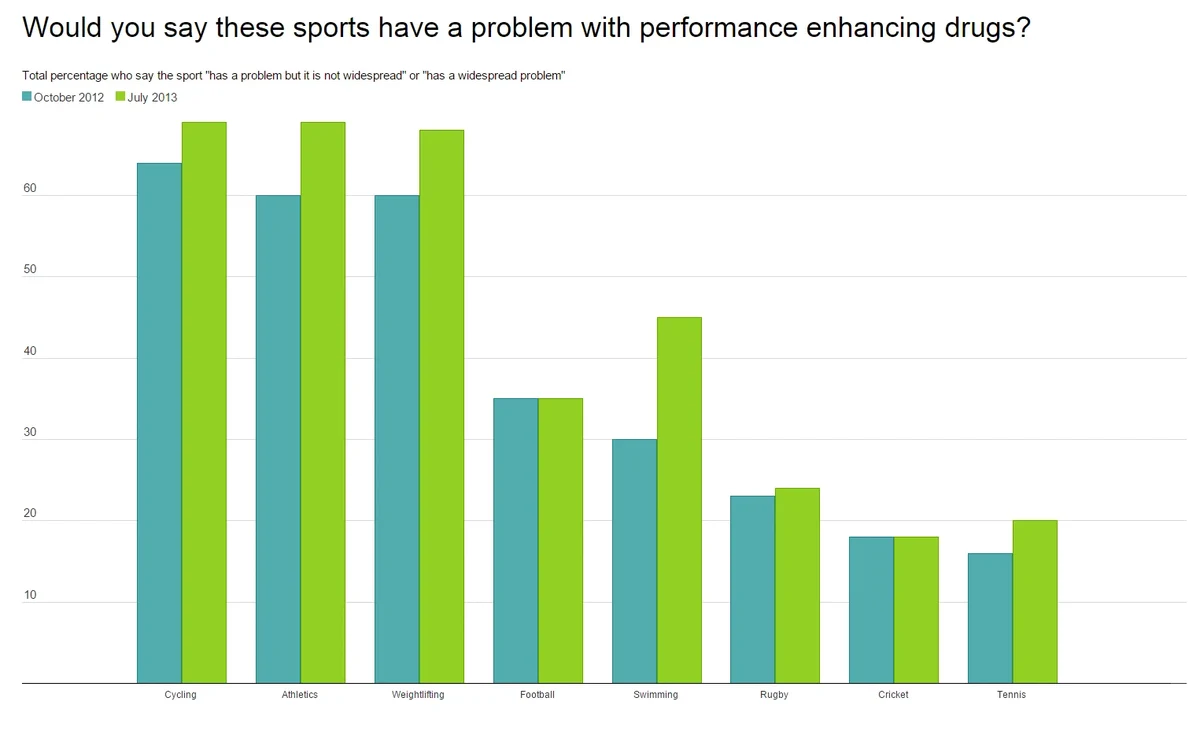Since 2012, several sports' reputations for drug use have worsened and few have improved – now around 69% believe cycling, athletics and weightlifting have a small or widespread issue with drugs
The president of the world's governing body for competitive cycling, UCI, was forced to respond to claims by ex-cycling champion and exposed doper Lance Armstrong that winning the Tour de France “is impossible without dope”. Pat McQuaid released a statement in response, saying of Armstrong and the use of drugs in cycling, "cycling has moved on". Yet YouGov finds that public perception of performance-enhancing drug (PED) use in cycling and other sports have worsened or changed little over the past year.
Between 68%-69% of the British public now believe that cycling, athletics and weightlifting have a small or widespread problem with PEDs. Last year the figures were 5-9% lower, at 64%, 60% and 60% respectively.

Swimming, which faced a number of accusations over PED use during last year’s Olympics, has seen the biggest increase in suspicion: now 45% believe the sport has a problem, when last year only 30% did.
The only sports whose reputations for PED use have not changed for the worse are football and cricket; at 35% and 18%, respectively, they have no better or worse a reputation than they did last year. Rugby and tennis have also seen only small increases of 1% and 4%, and have received relatively little suspicion generally. Additionally, a greater proportion of the public still says drugs are not a problem today for rugby, cricket and tennis than says they are a problem.
The latest revelation over PED use came from two-time Olympic and reigning 200-metre world champion runner Veronica Campbell-Brown, who tested positive in June for a banned diuretic and could face a career-ending ban.







